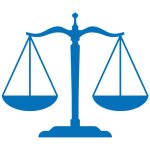Best Sustainable Finance Lawyers in Dakar
Share your needs with us, get contacted by law firms.
Free. Takes 2 min.
List of the best lawyers in Dakar, Senegal
About Sustainable Finance Law in Dakar, Senegal
Sustainable finance refers to financial activities and investments that take environmental, social, and governance (ESG) considerations into account. In Dakar, Senegal, this area of law is increasingly important due to global efforts to address climate change, foster social inclusion, and enhance transparency in financial markets. The Senegalese government, along with regional and international bodies, is emphasizing the adoption of sustainable finance principles to attract ethical investments and to align with the United Nations Sustainable Development Goals (SDGs). As Dakar is Senegal’s economic and financial hub, the city plays a pivotal role in advancing sustainable finance initiatives within the country.
Why You May Need a Lawyer
Engaging with sustainable finance in Dakar can present complex legal scenarios. Individuals and businesses may seek legal advice for tasks such as integrating ESG principles into company policies, ensuring compliance with local and international sustainable finance standards, structuring green bonds or other financial products, handling regulatory disclosures, or managing disputes regarding sustainability claims. Legal professionals with expertise in sustainable finance can also assist with navigating government incentives, drafting or reviewing contracts, and providing guidance on risk management linked to ESG compliance. Whether you are an investor, entrepreneur, or part of a non-profit organization, legal support can help safeguard your interests and ensure that your operations meet current and evolving regulatory requirements.
Local Laws Overview
Senegal has taken significant steps to promote sustainable finance, guided by national, regional, and international frameworks. Dakar, as the heart of Senegal’s financial sector, is subject to a combination of local regulations and West African regional standards. Key aspects include:
- The West African Economic and Monetary Union (WAEMU) sets certain financial guidelines that encourage sustainable practices among member countries, including Senegal.
- The Senegalese government has adopted a Green Bond framework, enabling the issuance of bonds to fund environmentally friendly projects.
- Relevant environmental laws, such as the Environment Code and regulations on land use, affect financial decision-making for projects in energy, agriculture, infrastructure, and more.
- New anti-money laundering and corporate governance requirements have an impact on how financial institutions in Dakar approach transparency and ESG issues.
- Participation in international agreements, such as the Paris Agreement, compels local stakeholders to align project finance with climate-related standards.
Frequently Asked Questions
What is sustainable finance in the context of Dakar, Senegal?
Sustainable finance in Dakar refers to financial activities and investments that integrate environmental, social, and governance factors into decision-making, aiming for positive societal impact while ensuring financial returns.
Who regulates sustainable finance in Senegal?
Financial activities related to sustainability are regulated by Senegalese governmental bodies such as the Ministry of Economy and Finance, sector-specific regulators, and entities under WAEMU.
What types of financial products are available for sustainable investment?
Products include green bonds, social bonds, sustainability-linked loans, ethical investment funds, and microfinance schemes for renewable energy or social development projects.
What legal documents are commonly involved in sustainable finance?
Common documents include investment contracts, loan agreements, project finance agreements, disclosure statements, ESG policy documents, and regulatory compliance papers.
Are there incentives for adopting sustainable finance practices?
Yes, Senegal offers incentives such as tax advantages, access to government-backed funds, and support for innovation in sustainable sectors, especially for green projects.
How can I ensure my investments comply with ESG criteria?
Legal advisors can help conduct due diligence, draft compliance policies, and ensure transparent reporting aligned with national and international ESG standards.
What risks are associated with sustainable finance?
Risks include legal and regulatory changes, greenwashing accusations, project underperformance, and challenges in measuring long-term impact.
How do green bonds work in Senegal?
Green bonds are issued to finance environmentally beneficial projects. Senegal’s regulatory framework ensures that proceeds are used for qualifying green purposes, with legal oversight to validate compliance.
Can NGOs or small businesses access sustainable finance?
Yes, NGOs and small businesses can seek grants, microloans, or impact investment opportunities designed to foster sustainable practices and community development.
What should I look for when choosing a legal advisor in sustainable finance?
Select a lawyer with experience in finance, a solid understanding of ESG practices, familiarity with local and regional regulations, and a proven track record in sustainability projects.
Additional Resources
- Ministry of Economy and Finance, Senegal: Provides information on regulatory compliance and sustainable investment programs
- Agence UMOA-Titres: Regional body responsible for bond issuance under WAEMU
- Dakar International Finance Hub (D-Hub): Offers support for innovative and sustainable financial solutions
- Ecobank Foundation, Senegal: Supports community and sustainable projects through grants and funding
- United Nations Development Programme (UNDP), Senegal: Offers guidance, capacity building, and advocacy for sustainable development and finance
- Senegalese Environment Code: The legal framework governing environmental protection and sustainable development in Senegal
Next Steps
If you are considering engaging in sustainable finance projects or investments in Dakar, Senegal, begin by clarifying your goals and compiling relevant documentation. Consult a qualified lawyer with expertise in finance and sustainability to review your plans, assess compliance with all applicable laws, and advise on risk management. You may wish to reach out to local regulatory bodies or finance hubs for preliminary guidance. A legal professional can also help you negotiate contracts, conduct due diligence, and ensure your initiatives align with both local regulations and global sustainable finance standards. Do not hesitate to request credentials and references to ensure your legal advisor is well-suited to your needs.
Lawzana helps you find the best lawyers and law firms in Dakar through a curated and pre-screened list of qualified legal professionals. Our platform offers rankings and detailed profiles of attorneys and law firms, allowing you to compare based on practice areas, including Sustainable Finance, experience, and client feedback.
Each profile includes a description of the firm's areas of practice, client reviews, team members and partners, year of establishment, spoken languages, office locations, contact information, social media presence, and any published articles or resources. Most firms on our platform speak English and are experienced in both local and international legal matters.
Get a quote from top-rated law firms in Dakar, Senegal — quickly, securely, and without unnecessary hassle.
Disclaimer:
The information provided on this page is for general informational purposes only and does not constitute legal advice. While we strive to ensure the accuracy and relevance of the content, legal information may change over time, and interpretations of the law can vary. You should always consult with a qualified legal professional for advice specific to your situation.
We disclaim all liability for actions taken or not taken based on the content of this page. If you believe any information is incorrect or outdated, please contact us, and we will review and update it where appropriate.









